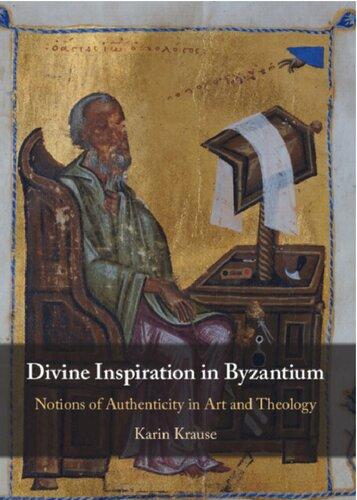Other documents randomly have different content
“Mr. Colwell, it is 93 or nothing.” She was almost pale at her own boldness. It really seemed to her as if the price had only been waiting for her to sell out in order to advance. And though she wanted the bonds, she did not feel like yielding.
“Then I very much fear it will have to be nothing.”
“Er—good morning, Mr. Colwell,” on the verge of tears.
“Good morning, Mrs. Hunt.” And before he knew it, forgetting all that had gone before, he added: “Should you change your mind, I should be glad to——”
“I know I wouldn’t pay more than 93 if I lived to be a thousand years.” She looked expectantly at him, to see if he had repented, and she smiled—the smile that is a woman’s last resort, that says, almost articulately: “I know you will, of course, do as I ask. My question is only a formality. I know your nobility, and I fear not.” But he only bowed her out, very politely.
On the Stock Exchange the price of Man.Elec.L.H.&P . Co. 5srose steadily. Mrs. Hunt, too indignant to feel lachrymose, discussed the subject with her Cousin Emily and her husband. Emily was very much interested. Between her and Mrs. Hunt they forced the poor man to make strange admissions, and, deliberately ignoring his feeble protests, they worked themselves up to the point of believing that, while it would be merely generous of Mr. Colwell to let his friend’s widow have the bonds at 93, it would be only his obvious duty to let her have them at 96½. The moment they reached this decision Mrs. Hunt knew how to act. And the more she thought the more indignant she became. The next morning she called on her late husband’s executor and friend.
Her face wore the look often seen on those ardent souls who think their sacred and inalienable rights have been trampled upon by the tyrant Man, but who at the same time feel certain the hour of retribution is near.
“Good morning, Mr. Colwell. I came to find out exactly what you propose to do about my bonds.” Her voice conveyed the impression
that she expected violent opposition, perhaps even bad language, from him.
“Good morning, Mrs. Hunt. Why, what do you mean?”
His affected ignorance deepened the lines on her face. Instead of bluster he was using finesse!
“I think you ought to know, Mr. Colwell,” she said, meaningly.
“Well, I really don’t. I remember you wouldn’t heed my advice when I told you not to sell out, and again when I advised you to buy them back.”
“Yes, at 96½,” she burst out, indignantly.
“Well, if you had, you would to-day have a profit of over $7,000.”
“And whose fault is it that I haven’t?” She paused for a reply. Receiving none, she went on: “But never mind; I have decided to accept your offer,” very bitterly, as if a poor widow could not afford to be a chooser; “I’ll take those bonds at 96½.” And she added, under her breath: “Although it really ought to be 93.”
“But, Mrs. Hunt,” said Colwell, in measureless astonishment, “you can’t do that, you know. You wouldn’t buy them when I wanted you to, and I can’t buy them for you now at 96½. Really, you ought to see that.”
Cousin Emily and she had gone over a dozen imaginary interviews with Mr. Colwell—of varying degrees of storminess—the night before, and they had, in an idle moment, and not because they really expected it, represented Mr. Colwell as taking that identical stand. Mrs. Hunt was, accordingly, prepared to show both that she knew her moral and technical rights, and that she was ready to resist any attempt to ignore them. So she said, in a voice so ferociously calm that it should have warned any guilty man: “Mr. Colwell, will you answer me one question?”
“A thousand, Mrs. Hunt, with pleasure.”
“No; only one. Have you kept the bonds that I bought, or have you not?”
“What difference does that make, Mrs. Hunt?”
He evaded the answer!
“Yes or no, please. Have you, or have you not, those same identical bonds?”
“Yes; I have. But——”
“And to whom do those bonds belong, by rights?” She was still pale, but resolute.
“To me, certainly.”
“To you, Mr. Colwell?” She smiled. And in her smile were a thousand feelings; but not mirth.
“Yes, Mrs. Hunt, to me.”
“And do you propose to keep them?”
“I certainly do.”
“Not even if I pay 96½ will you give them to me?”
“Mrs. Hunt,” Colwell said with warmth “when I took those bonds off your hands at 93 it represented a loss on paper of $3,000——”
She smiled in pity—pity for his judgment in thinking her so hopelessly stupid.
“And when you wanted me to sell them back to you at 93 after they had risen to 96½, if I had done as you wished, it would have meant an actual loss of $3,000 to me.”
Again she smiled—the same smile, only the pity was now mingled with rising indignation.
“For Harry’s sake I was willing to pocket the first loss, in order that you might not worry. But I didn’t see why I should make you a present of $3,000,” he said, very quietly.
“I never asked you to do it,” she retorted, hotly.
“If you had lost any money through my fault, it would have been different. But you had your original capital unimpaired. You had nothing to lose, if you bought back the same bonds at practically the same price. Now you come and ask me to sell you the bonds at 96½ that are selling in the market for 104, as a reward, I suppose, for your refusal to take my advice.”
“Mr. Colwell, you take advantage of my position to insult me. And Harry trusted you so much! But let me tell you that I am not going to let you do just as you please. No doubt you would like to have me go home and forget how you’ve acted toward me. But I am going to consult a lawyer, and see if I am to be treated this way by a friendof my husband’s. You’ve made a mistake, Mr. Colwell.”
“Yes, madam, I certainly have. And, in order to avoid making any more, you will oblige me greatly by never again calling at this office. By all means consult a lawyer. Good morning, madam,” said the politest man in Wall Street.
“We’ll see,” was all she said; and she left the room.
Colwell paced up and down his office nervously. It was seldom that he allowed himself to lose his temper, and he did not like it. The ticker whirred away excitedly, and in an absent-minded, halfdisgusted way he glanced sideways at it.
“Man.Elec.5s,106⅛,” he read on the tape.
THE BREAK IN TURPENTINE
In the beginning of the beginning the distillers of turpentine carried competition to the quarrelling point. Then they carried the quarrel to the point of silence, which was most to be feared, for it meant that no time was to be wasted in words. All were losing money; but each hoped that the others were losing more, proportionately, and therefore would go under all the sooner. The survivors thought they could manage to keep on surviving, for on what twelve would starve four could feast.
It is seen periodically in the United States: an industry apparently suffering from suicidal mania. It is incomprehensible, inexplicable, though mediocrities mutter: “Over-production!” and shake their heads complacently, proud of having diagnosed the trouble. Here was the turpentine business, once great and lucrative, now ruinproducing; formerly affording a comfortable livelihood to many thousands and now giving ever-diminishing wages to everdiminishing numbers.
It was Mr. Alfred Neustadt, a banker in a famous turpentine district, who first called his brother-in-law’s attention to the pitiable sight. Mr. Jacob Greenbaum’s soul thrilled during Neustadt’s recital. He perceived golden possibilities that dazzled him: He decided to form a Turpentine Trust.
First he bought for a song all the bankrupt stills; seven of them. Later on, in his scheme of trust creation, these self-same distilleries would be turned over to the “octopus,” at nice fat figures, as Greenbaum put it, self-admiringly, to his brother-in-law. Then he secured options on nine others, the tired-unto-death plants. In this
way he was able to control “a large productive capacity” at an expenditure positively marvellous—it was so small. It was also in his brother-in-law’s name. Then the banking house of Greenbaum, Lazarus & Co. stepped in, interested accomplices, duped or coerced into selling enough other distillers to assure success, cajoled the more stubborn, wheedled the more credulous, gave way gracefully to the shrewder and gathered them all into the fold. The American Turpentine Company was formed, with a capital stock of $30,000,000 or 300,000 shares at $100 each. The cash needed, to pay Mr. Greenbaum, Neustadt and others who sold their plants for “part cash and part stock,” was provided by an issue of $25,000,000 of 6 per cent bonds, underwritten by a syndicate composed of Greenbaum, Lazarus & Co., I. & S. Wechsler, Morris Steinfelder’s Sons, Reis & Stern, Kohn, Fischel & Co., Silberman & Lindheim, Rosenthal, Shaffran & Co. and Zeman Bros.
They were men who never “speculated”; sometimes they “conducted financial operations.” They had shears, not fleeces.
The prospectus of the “Trust” was a masterpiece of persuasiveness and vagueness, of slim statistics and alluring generalities. In due course of time the public subscribed for the greater part of the $25,000,000 of bonds, and both bonds and stock were “listed” on the New York Stock Exchange—that is, they were placed on the list of securities which members may buy or sell on the “floor” of the Exchange.
Tabularly expressed, the syndicate’s operations were as follows:
Authorized stock
$30,000,000
Authorized bonds 25,000,000
Total $55,000,000
Actual worth of property 12,800,000
AquaPura $42,200,000
Paid to owners for 41 distilleries representing 90 per cent of the turpentine production (and 121 per cent of the consumption!) of the United States:
Cash from bond sales $8,975,983 Bonds 12,000,000 Stock 18,249,800
Total $39,225,783 Syndicate’s commission, stock 12,988,500
Retained in Co.’s treasury, unissued 2,000,000 Expenses and discounts on bonds, etc. 785,717
Total $55,000,000
These figures were not for publication. They told the exact truth.
The public knew nothing of the company’s earning capacity, save a few tentative figures from the prospectus, which was a sort of financial gospel according to Greenbaum, but which did not create fanatical devotees among investors. The stock, unlike the Kipling ship, had not found itself. It was not market-proven, not seasoned; no one knew how much dependence to put on it; wherefore the banks would not take it as collateral security on loans and wherefore the “speculative community” (as the newspapers call the stock gamblers) would not touch it, since in a pinch it might prove utterly unvendible. It remained for the syndicate to make a “market” for it, to develop such a condition of affairs that anyone at any time could, without overmuch difficulty and without causing over-great
fluctuations, sell readily American Turpentine Company stock. The syndicate would have to earn its commission.
All the manufacturers who had received stock in part payment were told most impressively by Mr. Greenbaum not to sell their holdings under any circumstances at any price below $75 a share. Not knowing Mr. Greenbaum, they readily and solemnly promised to obey him. They even permitted themselves to think, after talking to him, that they would some day receive $80 per share for all their holdings. This precluded any untimely “unloading” by the only people outside the syndicate that held any Turpentine stock at all.
Mr. Greenbaum took charge of the market conduct of “Turp,” as the tape called the stock of the American Turpentine Company. At first, the price was marked up by means of “matched” orders— preconcerted and therefore not bona fide transactions. Mr. Greenbaum told one of his brokers to sell 1,000 shares of “Turp” to another of his brokers and shortly afterwards the second broker sold the same 1,000 shares to a third, by pre-arrangement—this being the matching process—with the result that the tape recorded transactions of 2,000 shares. After the “matching” had gone on for some time, readers of the tape were supposed to imagine that the stock was legitimately active and strong—two facts which in turn were supposed to whet the buying appetite. It was against the rule of the Exchange to “match” orders, but how could convictions be secured?
“Turp” began at 25 and as the syndicate had all the stock in the market, it was easily manipulated upward to 35. Every day, many thousands of shares, according to the Stock Exchange’s official records, “changed hands”—from Greenbaum’s right to his left and back again—and the price rose steadily. But something was absent. The manipulation was not convincing. It did not make the general public nibble. The only buyers were the “room traders,” that is, the professional stock gamblers who were members of the Exchange and speculated for themselves exclusively; and those customers of the commission houses who, because they were bound to speculate
daily or die and because they studied the ticker-ribbon so assiduously, were known by the generic name of “tape-worms.” These gentry, in and out of the Exchange, provided the tape in its curious language foretold a rise, would buy anything—from capitalized impudence, as in the case of Back Bay Gas, whose property was actually worth nil and its capital stock was $100,000,000, up to Government bonds.
Now, the room traders and the tape-worms reasoned not illogically that the “Greenbaum gang” had all the stock and that perforce the “gang” had to find a market for it; and the only way to do this was by a nice “bull” or upward movement. When a stock rises and rises and rises the newspapers are full of pleasant stories about it and the lambs read but do not run away; they buy on the assumption that, as the stock has already risen ten points it may rise ten more. This explains why they make so much money in Wall Street—for the natives.
Greenbaum and his associates were exceptionally shrewd business men, thoroughly familiar with Wall Street and its methods, cautious yet bold, far-seeing yet eminently of the day. They were practical financiers. They marked up the price of “Turp” ten points; but they could not arouse public interest in it so that people would buy it. Indeed, at the end of three weeks, during which the “Street” had been flooded with impressive advice, printed and spoken, to buy because the price was going higher, all they had for their trouble was more stock-–6,000 shares from Ira D. Keep, a distiller, who sold out at 38 because he needed the money; and they also were obliged to buy back from the “room traders” at 35 and 36 and higher, the same stock the “gang” had sold at 30 and 31 and 32 and 34. Then the manipulators had to “support” the stock at the higher level, that is, they had to keep it from declining, which could be done only by continuous buying. By doing this the public might imagine there was considerable merit in a stock which was in such good demand from intelligent people as to remain firm, notwithstanding its previous substantial rise. And if somebody wanted “Turp” why shouldn’t the public want it? The public generally asks itself that question. It is in
the nature of a nibble and rejoices the hearts of the financial anglers.
Every attempt to sell “Turp” met with failure. At length it was decided to allow the price to sink back to an “invitingly low” level. It was done. But still the invited public refused to buy. Efforts to encourage a short interest to over-extend itself unto “squeezable” proportions failed similarly. The Street was afraid to go “short” of a stock which was so closely held. The philosophy of short selling is simple; it really amounts to betting that values will decline. A man who “sells short” sells what he does not possess, but hopes to buy, later on, at a lower price. But since he must deliver what he sells he borrows it from some one else, giving the lender ample security. To “cover” or to “buy in” is to purchase stock previously sold short. Obviously, it is unwise to be short of a stock which is held by such a few that it may be difficult to borrow it. To “squeeze” shorts is to advance the price in order to force “covering.” This is done when the short interest is large enough to make it worth while.
In the course of the next few months, after a series of injudicious fluctuations which gave to “Turp” a bad name, even as Wall Street names went, despite glowing accounts of the company’s wonderful business and after distributing less than 35,000 shares, the members of the “Turpentine Skindicate,” as it was popularly called, sorrowfully acknowledged that, while they had skilfully organized the trust and had done fairly well with the bonds, they certainly were not howling successes as manipulators. During the following eight months they sold more stock. They spared not the widow nor the orphan. They even “stuck” their intimate friends. They had sold for something what had cost them nothing; it was natural to wish to sell more.
Now, manipulators of stocks are born, not made. The art is most difficult, for stocks should be manipulated in such wise that they will not look manipulated. Anybody can buy stocks or can sell them. But not every one can sell stocks and at the same time convey the impression that he is buying them, and that prices therefore must inevitably go much higher. It requires boldness and consummate
judgment, knowledge of technical stock-market conditions, infinite ingenuity and mental agility, absolute familiarity with human nature, a careful study of the curious psychological phenomena of gambling and long experience with the Wall Street public and with the wonderful imagination of the American people; to say nothing of knowing thoroughly the various brokers to be employed, their capabilities, limitations and personal temperaments; also, their price.
Adequate manipulative machinery, moreover, can be perfected only with much toil and patience and money. Professional Wall Street will always tell you that “the tape tells the story.” The little paper ribbon, therefore, must be made to tell such stories as the manipulator desires should be told to the public; he must produce certain effects which should preserve an appearance of alluring spontaneity and, above all, of legitimacy and candor; he must be a great artist in mendacity and at the same time have the superb self-confidence of a grizzly.
Several members of the syndicate had many of these qualities, but none had them all. It was decided to put “Turp” stock in the hands of Samuel Wimbleton Sharpe, the best manipulator Wall Street had ever known. “Jakey” Greenbaum said he would conduct the negotiations with the great plunger.
Sharpe was a financial free-lance, free-booter and free-thinker. He had made his first fortune in the mining camps of Arizona and finding that field too narrow had come to New York, where he could gamble to his heart’s content. He was all the things that an ideal manipulator should be and several more. He had arrived in New York with a sneer on his lips and a loaded revolver in his financial hands. The other “big operators” looked at him in pained astonishment. “I carry my weapons openly,” Sharpe told them, “and you conceal your dirks. Don’t hurt yourselves trying to look honest. I never turn my back on such as you.” Of this encounter was born a hostility that never grew faint. Sharpe had nothing of his own to unload on anyone else, no property to overcapitalize and sell to an undiscriminating public by means of artistic lies and his enemies
often did. So they called him a gambler, very bitterly, and he called them philanthropists, very cheerfully. If he thought a stock was unduly high he sold it confidently, aggressively, stupendously. If he thought a stock was too low he bought it boldly, ready to take all the offerings and bid for more. And once on the march, he might be temporarily checked, be forced by the enemy to halt for a day or a week or a month; but inevitably he arrived. And such an arrival!
And as a manipulator of stock-values he had no equal. On the bull side he rushed a stock upward so steadily, so boldly and brilliantly, but, above all, so persuasively, that lesser gamblers almost fought to be allowed to take it off his hands at incredibly high prices. And when in the conduct of one of his masterly bear campaigns he saw fit to “hammer” the market, values melted away as by magic Satanic magic, the poor lambs thought. All stocks looked “sick,” looked as though prices would go much lower; murmurs of worse things to come were in the air, vague, disquieting, ruin-breeding. The atmosphere of the Street was supersaturated with apprehension, and the black shadow of Panic brooded over the Stock Exchange, chilling the little gamblers’ hearts, wiping out the last of the little gamblers’ margins. And even the presidents of the solid, conservative banks studied the ticker uneasily in their offices. Greenbaum was promptly admitted to Sharpe’s private office. It was a half-darkened room, the windows having wire-screens, summer and winter, in order that prying eyes across the street might not see his visitors or his confidential brokers, whose identity it was advisable should remain unknown to the Street. He was walking up and down the room, pausing from time to time to look at the tape. The ticker is the only telescope the stock-market general has; it tells him what his forces are doing and how the enemy is meeting his attacks. Every inch of the tape is so much ground; every quotation represents so many shots.
There was something feline in Sharpe’s stealthy, soundless steps, in his mustaches, in the conformation of his face—broad of forehead and triangulating chin-ward. In his eyes, too, there was something
tigerish—unmelodramatically cold hearted and coldly curious as they looked upon Mr. Jacob Greenbaum. Unconsciously the unfanciful Trust-maker asked himself whether Sharpe’s heart-beats were not ticker ticks, impassively indicating the pulse of the stock-market.
“Hallo, Greenbaum.”
“How do you do, Mr. Sharpe?” quoth the millionaire senior partner of the firm of Greenbaum, Lazarus & Co. “I hope you are well?” He bent his head to one side, his eyes full of a caressing scrutiny, as though to ascertain the exact condition of Sharpe’s health. “Yes, you must be. I haven’t seen you look so fine in a long time.”
“You didn’t come up here just to tell me this, Greenbaum, did you? How’s your Turpentine? Oh!”—with a long whistle—“I see. You want me to go into it, hey?” And he laughed—a sort of half-chuckle, halfsnarl.
Greenbaum looked at him admiringly; then, with a tentative smile, he said: “I am discovered!”
Nearly every American may be met as an equal on the field of Humor. To jest in business matters of the greatest importance bespoke the national trait. Moreover, if Sharpe declined, Greenbaum could treat the entire affair—the proposal and the rejection—as parts of a joke.
“Well?” said Sharpe, unhumorously.
“What’s the matter with a pool?”
“How big?” coldly.
“Up to the limit.” Again the Trust-maker smiled, uncertainly.
“You haven’t all the capital stock, I hope.”
“Well, call it 100,000 shares,” said Greenbaum, more uncertainly and less jovially.
“Who is to be in it besides you?”
“Oh, you know; the same old crowd.”
“Oh, I know,” mimicked Mr. Sharpe, scornfully, “the same old crowd. You ought to have come to me before; it will take something to overcome your own reputations. How much will each take?”
“We’ll fix that O. K. if you take hold,” answered Greenbaum, laughingly. “We’ve got over 100,000 shares and we’d rather some one else held some of it. We ain’t hogs. Ha! Ha!”
“But, the distillers?”
“They are in the pool. I’ve got most of their stock in my office. I’ll see that it does not come out until I say so.”
There was a pause. Between Sharpe’s eyebrows were two deep lines. At length, he said:
“Bring your friends here, this afternoon. Good-by, Greenbaum. And, I say, Greenbaum.”
“Yes?”
“No funny tricks at any stage of the game.”
“What’s the use of saying such things, Mr. Sharpe?” with an experimental frown.
“The use is so you won’t try any. Come at four,” and Mr. Sharpe began to pace up and down the room. Greenbaum hesitated, still frowning tentatively; but he said nothing and at length went out.
Sharpe looked at the tape. “Turp” was 29¼.
He resumed his restless march back and forth. It was only when the market “went against him” that Mr. Sharpe did not pace about the room in the mechanical way of a menagerie animal, glancing everywhere but seeing nothing. When something unexpected happened in the market Sharpe stood immobile beside the ticker, because his overworked nerves were tense—like a tiger into whose cage there enters a strange and eatable animal.
On the minute of four there called on Mr. Sharpe the senior partners of the firms of Greenbaum, Lazarus & Co., I. & S. Wechsler, Morris
Steinfelder’s Sons, Reis & Stern, Kohn, Fischel & Co., Silberman & Lindheim, Rosenthal, Shaffran & Co., and Zeman Bros.
They were ushered not into the private office, but into a sumptuously furnished room, the walls of which were covered with dashing oil paintings of horses and horse-races. The visitors seated themselves about a long oaken table.
Mr. Sharpe appeared at the threshold.
“How do you do, gentlemen? Don’t move, please; don’t move.” He made no motion to shake hands with any of them, but Greenbaum came to him and held out his fat dexter resolutely and Sharpe took it. Then Greenbaum sat down and said, “We’re here,” and smiled, blandly.
Sharpe stood at the head of the polished, shining table, and glanced slowly down the double row of alert faces. His look rested a fraction of a minute on each man’s eyes—a sharp, half-contemptuous, almost menacing look that made the older men uncomfortable and the younger resentful.
“Greenbaum tells me you wish to pool your Turpentine stock and have me market it for you.”
All nodded; a few said “yes”; one—Lindheim, aetat 27—said, flippantly, “That’s what.”
“Very well. What will each man’s proportion be?”
“I have a list here, Sharpe,” put in Greenbaum. He intentionally omitted the “Mr.” for effect upon his colleagues. Sharpe noted it, but did not mind it.
Sharpe read aloud:
Greenbaum, Lazarus & Co 38,000 shares. I. & S. Wechsler 14,000 shares. Morris Steinfelder’s Sons 14,000 shares. Reis & Stern 11,000 shares. Kohn, Fischel & Co 10,000 shares.
Silberman & Lindheim 9,000 shares.
Rosenthal, Shaffran & Co 9,800 shares.
Zeman Bros 8,600 shares.
Total 114,400 shares.
“Is that correct, gentlemen?” asked Sharpe.
Greenbaum nodded his head and smiled affably as befitted the holder of the biggest block. Some said “Yes”; others, “That is correct.” Young Lindheim said, “That’s what.” The founders of the firm—his uncle and his father—were dead, and he had inherited the entire business from the two. His flippancy was not inherited from either.
“It is understood,” said Sharpe, slowly, “that I am to have complete charge of the pool, and conduct operations as I see fit. I want no advice and no questions. If there is any asking to be done, I’ll do it. If my way does not suit you we’ll call the deal off right here, because it’s the only way I have. I know my business, and if you know yours you’ll keep your mouths shut in this office and out of it.”
No one said a word, not even Lindheim.
“Each of you will continue to carry the stock for which he has agreed to stand in the pool. You’ve had it a year and couldn’t sell it, and you might keep it a few weeks more, until I sell it for you. It must be subject to my call at one minute’s notice. I’ve looked into the company’s business, and I think the stock can easily sell at 75 or 80.”
Something like a gasp of astonishment came from those eight hardened speculators. Then Greenbaum smiled, knowingly, as if that were his programme, memorized and spoken by Sharpe.
“It is also understood,” went on Sharpe, very calmly, “that none of you has any other stock for sale at any price, excepting his
proportion in this pool, and that proportion, of course, is not to be sold excepting by me.” No one said a word, and he continued:
“My profit will be 25 per cent of the pool’s winnings, figuring on the stock having been put in at 29. The remaining profits will be divided pro rata among you; the necessary expenses will be shared similarly. I think that’s all. And, gentlemen, no unloading on the sly—not one share.”
“I want you to understand, Mr. Sharpe, that we are not in the habit of—” began Greenbaum with perfunctory dignity. He felt it was his duty to remonstrate before his colleagues.
“Oh, that’s all right, Greenbaum. I know you. That’s why I’m particular. We’ve all been in Wall Street more than a month or two. I simply said, ‘No shenanigan.’ And, Greenbaum,” he added, very distinctly, while his eyes took on that curious, cold, menacing look, “I mean it, every d——d word of it. I want the numbers of all your stock-certificates. Excuse me, gentlemen. I am very busy. Goodafternoon.”
And that is how the famous bull pool in Turpentine came to be formed. They thought he might have been nicer, more diplomatic; but as they had sought him, not he them, they bore with his eccentricities. Each pool manager had his way, just as there are various kinds of pools.
“Sam is not half a bad fellow,” Greenbaum told them, as if apologizing for a dear friend’s weaknesses. “He wants to make out he is a devil of a cynic, but he’s all right. If you humor him you can make him do anything. Ialways let him have his way.”
On the very next day began the historical advance in Turpentine. It opened up at 30. The specialists—brokers who made a specialty of dealing in it—took 16,000 shares, causing an advance to 32⅛. Everybody who had been “landed” with the shares at higher figures, and had bitterly regretted it ever since, now began to feel hopeful. As never before a stock had been manipulated, with intent to deceive and malice prepense, so did Sharpe manipulate Turpentine
stock. The tape told the most wonderful stories in the world, not the less wonderful because utterly untrue. Thus, one day the leading commission houses in the Street were the buyers, which inevitably led to talk of “important developments”; and the next day brokers identified with certain prominent financiers took calmly, deliberately, nonchalantly, all the offerings; which clearly indicated that the aforementioned financiers had acquired a “controlling interest”—the majority of the stock—of the American Turpentine Company. And on another day there was a long string of purchases of “odd” lots— amounts less than 100 shares—by brokers that usually did business for the Greenbaum syndicate, meaning that friends of the syndicate had received a “tip” straight from “the inside” and were buying for investment.
Then, one fine, sunshiny day, when everybody felt very well and the general market was particularly firm, the loquacious tape told the watchful professional gamblers of Wall Street—oh, so plainly!—that there was “inside realizing”; said, almost articulately to them, that the people most familiar with the property were unloading. Sharpe was selling, with intentional clumsiness, stock he had been forced to accumulate during his bull manipulation—for in order to advance the price he had to buy much—and he was not averse to conveying such impressions as would lead to the creation of a short interest, large enough to make it profitable to “squeeze.” He had too much company on the bull side. And sure enough the professional gamblers said: “Aha! They are through with it. The movement is over!” and sold “Turp” short confidently, for a worthless stock had no business to be selling at $46 a share. The price yielded and they sold more the next day. But lo, on the day following, the Board member of a very conservative house went into the “Turp” crowd and bought it—he did not “bid up” the price at all, but bought and bought until he had accumulated 20,000 shares, and the bears became panicstricken, and rumors of a nearby dividend began to circulate, and the bears covered their shorts at a loss and “went long”—bought in the hope of a further rise—and the stock closed at 52.
And Sharpe reduced very greatly the amount of “Turp” stock he had been obliged to take for manipulative purposes. So far he was buying more than he sold. Later he would sell more than he bought. When the demand exceeds the vendible supply, obviously the price rises; when the supply for sale exceeds the demand, a fall results. But the average selling price of a big line may be high enough to make the operation profitable, even though a decline occurs during the course of the selling.
For a week “Turp” rested; then it began to rise once more. At 56 and 58 it became the most active stock of the entire list. Everybody talked about it. The newspapers began to publish statements of the company’s wonderful earnings, and the Street began to think that, in common with other “trusts,” the American Turpentine Company must be a very prosperous concern. The company at this time developed a habit of advancing prices a fraction of a cent per gallon every week, so that the papers could talk of the boom in the turpentine trade.
At 60 the Street thought there really must be something behind the movement, for no mere manipulation could put up the price thirty points in a month’s time, which shows what a wonderful artist Sharpe was. And people began to look curiously and admiringly and enviously and in many other ways at “Jakey” Greenbaum and his accomplices, and to accuse them of having intentionally kept down the price of the stock for a year in order to “freeze out” the poor, unsophisticated stockholders, and to “tire out” some of the early buyers, because “Turp,” being “a good thing,” Greenbaum et al. wanted it all for themselves. And Greenbaum et al. smiled guiltily and said nothing, though Jakey winked from time to time when they spoke to him about it; and old Isidore Wechsler cultivated a Napoleon III. look of devilish astuteness; and “Bob” Lindheim became almost dignified; and myopic little Morris Steinfelder gained 15 pounds and Rosenthal stopped patting everybody on the back, and mutely invited everybody to pat him on the back.
Then Sharpe sent for “Jakey,” and on the next day young “Eddie” Lazarus swaggeringly offered to wager $10,000 against $5,000 that a dividend on “Turp” stock would be declared during the year. Whereupon the newspapers of their own accord began to guess how great a dividend would be paid, and when; and various figures were mentioned in the Board room by brokers who confided to their hearers that they “got it on the dead q. t., straightfrom theinside.”
And two days later Sharpe’s unsuspected brokers offered to pay 1¾ per cent for the dividend on 100,000 shares, said dividend to be declared within sixty days or the money forfeited. And the stock sold up to 66¾, and the public wanted it. A big, broad market had been established, in which one could buy or sell the stock with ease by the tens of thousands of shares. The 114,400 shares, which at the inception of the movement at the unsalable price of $30 a share represented a theoretical $3,432,000, now readily vendible at $65 a share, meant $7,422,000; not half bad for a few weeks’ work.
And still Sharpe, wonderful man that he was, gave no sign that he was about to begin unloading. Whereupon the other members of the pool began to wish he were not quite so greedy. They were satisfied to quit, they said. The presence of the pool’s stock in their offices began to irritate them. They knew the vicissitudes of life, the uncertainties of politics, and of the stock market. Supposing some crazy anarchist blew up the President of the United States, or the Emperor of Germany were to insult his grandmother, the market would “break” to pieces, and their $4,000,000 of paper profits would disappear. They implored, individually and collectively, Mr. Jacob Greenbaum to call on Sharpe; and Greenbaum, disregarding a still, small voice that warned him against it, went to Sharpe’s office, and came out of it, two minutes later, somewhat flushed, and assured his colleagues one by one that Sharpe was all right, and that he seemed to know his business. Also, that he was cranky that day. He always was, added Greenbaum forgivingly, when one of his horses lost a race.
The stock fluctuated between 60 and 65. It seemed to be having a resting spell. But as it had enjoyed these periods of repose on three
several occasions during the rise—at 40 and 48 and 56–-the public became all the more eager to buy it whenever it fell to 60 or 59, for the Street was now full of tips that “Turp” would go to par. And such was the public’s speculative temper and Mr. Sharpe’s good work that disinterested observers were convinced the stock would surely sell above 90 at the very least. Mr. Sharpe still bought and sold, but he sold twice as much as he bought, and the big block he had been obliged to take in the course of his manipulation diminished. On the next day he hoped to begin selling the pool stock.
That very day Mr. Greenbaum, as he returned to his office from his luncheon, felt well pleased with the meal and therefore with himself and therefore with everything. He scanned a yard or two of the tape and smiled. “Turp” was certainly very active and very strong.
“In such a market,” thought Mr. Greenbaum, “Sharpe can’t possibly tell he’s getting stock from me. In order to be on the safe side I’m going to let him have a couple of thousand. Then, should anything happen, I’d be that much ahead. Ike!” he called to a clerk.
“Yes, sir.”
“Sell two—wait; make it 3,000–-no, never mind. Send for Mr. Ed Lazarus.” And he muttered to himself, with a sub-thrill of pleasure: “I can just as well as not make it 5,000 shares.”
“Eddie,” he said to his partner’s son, “give an order to some of the room traders, say to Willie Schiff, to sell five—er—six—tell him to sell 7,000 shares of Turpentine and to borrow the stock. I am not selling a share, see?” with a wink. “It’s short selling by him, do you understand?”
“Do I? Well, I guess. I’ll fix that part O.K.,” said young Lazarus, complacently. He thought he would cover Greenbaum’s tracks so well as to deceive everybody, including that highly disagreeable man, Samuel Wimbleton Sharpe. He felt so confident, so elated, did the young man, that when he gave the order to his friend and clubmate, Willie Schiff, he raised it to 10,000 shares. Greenbaum’s breach of faith had grown from the relatively small lot of 2,000
Welcome to our website – the perfect destination for book lovers and knowledge seekers. We believe that every book holds a new world, offering opportunities for learning, discovery, and personal growth. That’s why we are dedicated to bringing you a diverse collection of books, ranging from classic literature and specialized publications to self-development guides and children's books.
More than just a book-buying platform, we strive to be a bridge connecting you with timeless cultural and intellectual values. With an elegant, user-friendly interface and a smart search system, you can quickly find the books that best suit your interests. Additionally, our special promotions and home delivery services help you save time and fully enjoy the joy of reading.
Join us on a journey of knowledge exploration, passion nurturing, and personal growth every day!










